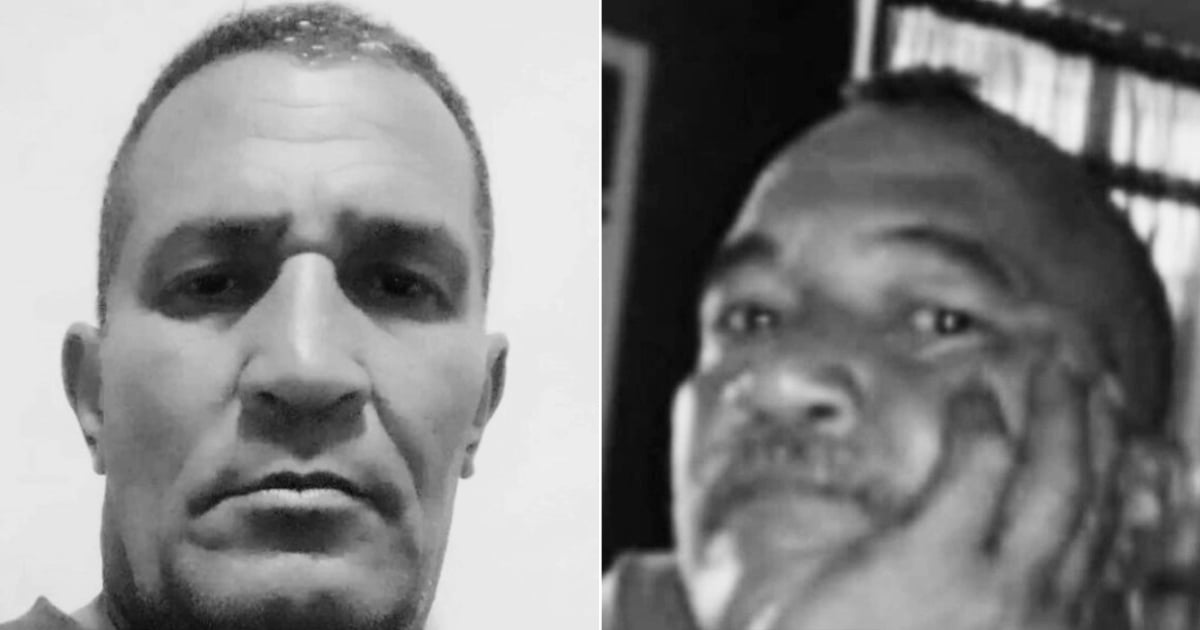The organization Cubalex has reported the recent arbitrary arrest of siblings Dional and Daniel Barrios Figueredo in Bayamo, located in the Granma province. These arrests were a result of their participation in protests against extended power outages affecting Cubans. These demonstrations are part of a wave of protests primarily occurring in eastern and central provinces of Cuba, amid a severe energy crisis and widespread social discontent. The capital has also experienced unrest, with banging pots and street protests indicating a populace on the verge of erupting.
Dional Barrios was detained on Thursday, November 7, at a Revolutionary National Police (PNR) station in Bayamo, accused of "disturbing the peace." His brother, Daniel, was arrested the previous day, November 6, after attending a protest in a part of the city hit hardest by frequent power outages. Yailet Barrios, Dional’s daughter, disclosed on social media that the family has not been allowed to visit the detained brothers and can only send a few belongings through police personnel, with no further information on their legal status.
A Nation in Protest Over Blackouts
The arrests of the Barrios Figueredo brothers are not isolated incidents in Cuba, where spontaneous protests have been erupting across numerous municipalities throughout the island for months. In October, the eastern and central provinces experienced increased power outages, sometimes lasting up to 12 hours a day. This situation has fueled frustration among Cubans, as their daily lives are severely disrupted, with no means to preserve food, limited access to running water, and difficulties performing essential activities.
One of the most notable protests took place in Encrucijada, in the Villa Clara province, where at the end of October, a group of residents took to the streets to peacefully protest after several consecutive nights without power. Armed with pots and flashlights, the Encrucijada residents demanded that authorities restore electricity and improve conditions in the area. However, police forces quickly clamped down on the protest, arresting several participants, issuing fines, and increasing control in the region in the following days to prevent further gatherings.
Government's Reaction to Power Outage Protests
In Manicaragua, also in Villa Clara, another group of citizens protested with pots and chants of "We want power!" after enduring power cuts exceeding 10 hours at a stretch. These protests were accompanied by temporary internet shutdowns in the locality, a tactic used by authorities to prevent the spread of protests on social media and to limit both national and international awareness. Despite these restrictions, several videos and photos of the Manicaragua protest circulated online, highlighting the residents' frustration with the government's lack of response, which only acts to suppress dissent.
The Cuban government's response to these protests has often included arbitrary arrests, police brutality, fines, and threats against participants. According to testimonies collected by human rights organizations like Cubalex, the regime has deployed State Security and PNR agents to areas with a history of protests, deterring many Cubans from demonstrating. Authorities also frequently cut internet access in active protest areas, hindering communication among protesters and preventing images from reaching social media.
The Attorney General's Office recently issued a statement warning that it will arrest and prosecute those participating in demonstrations deemed "destabilizing." This announcement followed spontaneous protests in several provinces, where Cubans took to the streets to voice their frustration over the energy crisis. The Attorney General reiterated that criminal penalties would be applied under charges of "public disorder" and "disturbance of the peace," aimed at discouraging further protests.
Bayamo's Tradition of Protest
This repressive stance has been characterized by human rights organizations as an escalation in state repression, aimed at silencing those seeking solutions amid the island's deteriorating living conditions. This oppressive context is even more evident in the case of the Barrios Figueredo brothers, who have a history of conflicts with authorities. Cubalex noted that both are uncles of Maikol Fabián Figueredo Carbonel, a young man who participated in the July 11, 2021 protests (known as 11J) when he was a minor. Although initially released, State Security allegedly fabricated a common crime against him, which has kept him imprisoned. This family background feeds fears among the brothers' relatives that the regime might attempt more severe reprisals against them.
The energy crisis and lack of effective responses have intensified social discontent in Cuba, where shortages and difficulties accessing essential goods like food and medicine are constant. Protests over blackouts add to the growing dissatisfaction of a population facing a declining economy and constant restrictions on their freedoms. In recent months, Bayamo has emerged as a focal point for protests in Cuba, with residents repeatedly taking to the streets to protest the energy crisis and poor living conditions on the island.
On March 17, a protest in this city was a landmark event, with dozens of people gathering in the central park to voice their opposition not only to power outages but also to the lack of civil rights and overall government management. This demonstration, which included chants of "Down with the dictatorship!" and calls for freedom, was met with a significant deployment of State Security agents, who arrested several protesters, including known social media activists. Despite threats and state surveillance, the increasing number of citizens joining protests in Bayamo and other cities reflects deep social exhaustion and a desire for change that transcends power cuts, addressing structural issues and demands for greater freedoms.
